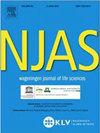Public-private partnerships as systemic agricultural innovation policy instruments – Assessing their contribution to innovation system function dynamics
Abstract
This paper addresses the question how public-private partnerships function as systemic innovation policy instruments within agricultural innovation systems. Public-private partnerships are a popular government tool to promote innovations. However, the wide ranging nature of PPPs make it difficult to assess their effects beyond the direct impacts they generate for the partners. This paper broadens the discussion on the evaluation of PPPs beyond the organisational and financial benefits of the actors involved, and assesses their contribution to the functioning of the innovation system itself. In this paper, we utilise an innovation system perspective that focusses on how PPPs influence the dynamic interplay of innovation system functions and how these functions form a set of feedback loops that constitute an ‘innovation motor’. We compare the innovation history of four cases that differ in their strategic policy goals, either working on agricultural sustainability, or on the international competitiveness in the Dutch agricultural sector. The results show the strengths and weaknesses of different types of public-private partnerships as systemic instruments and their capability to orchestrate other types of innovation policy instruments.

 求助内容:
求助内容: 应助结果提醒方式:
应助结果提醒方式:


